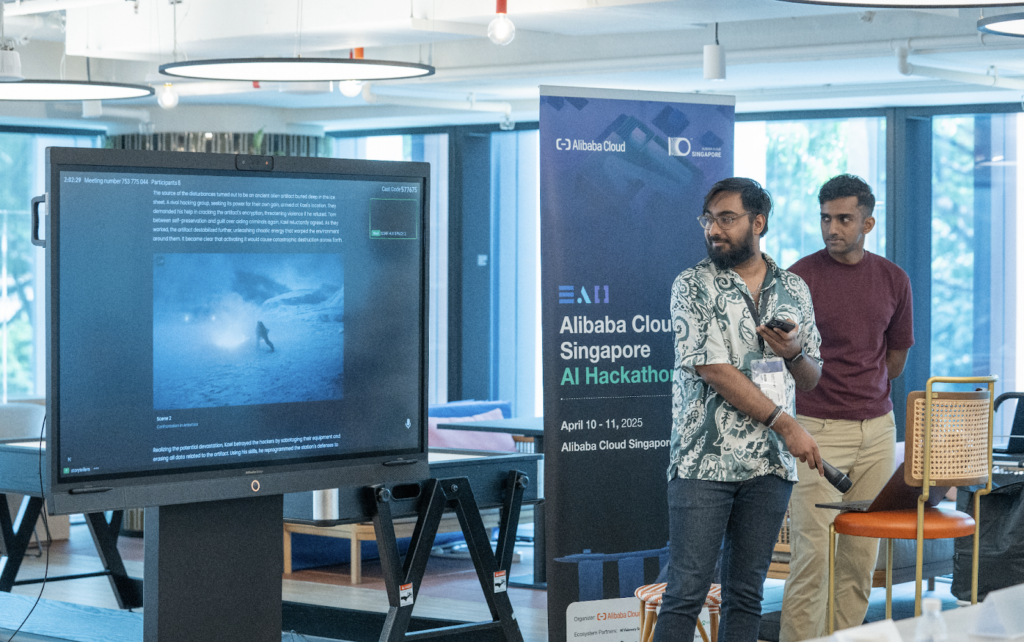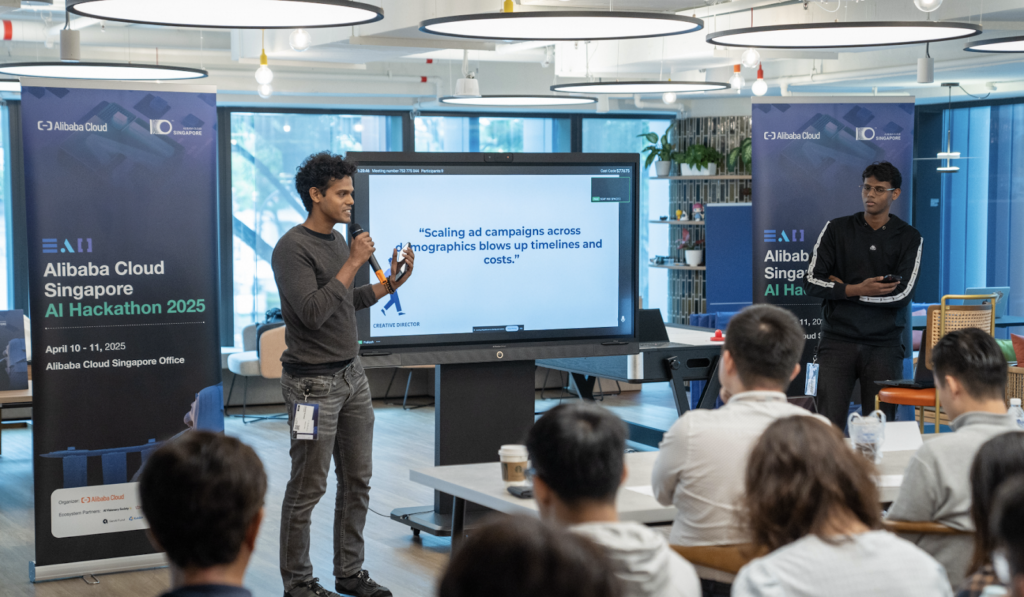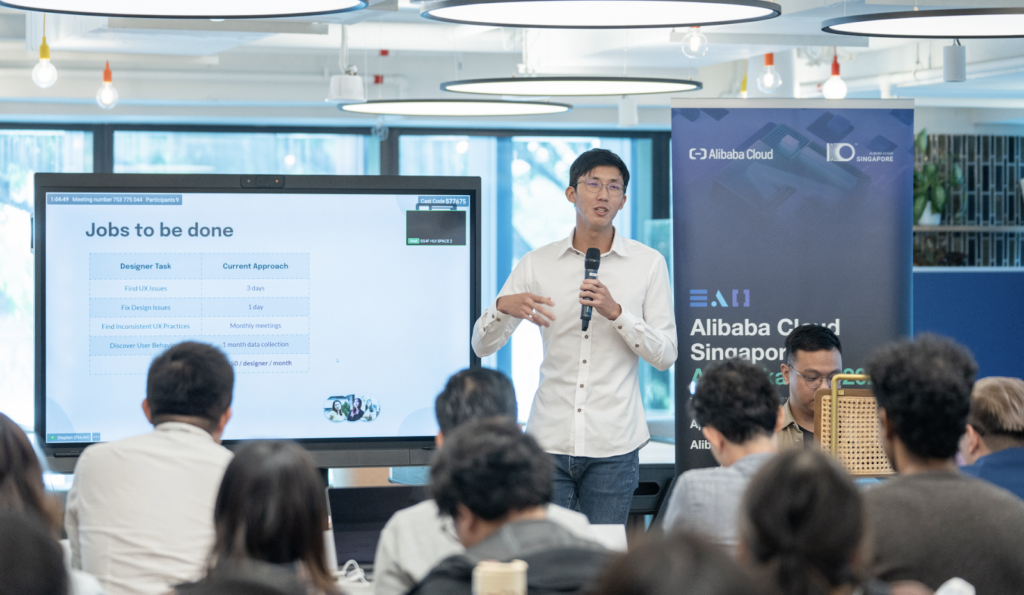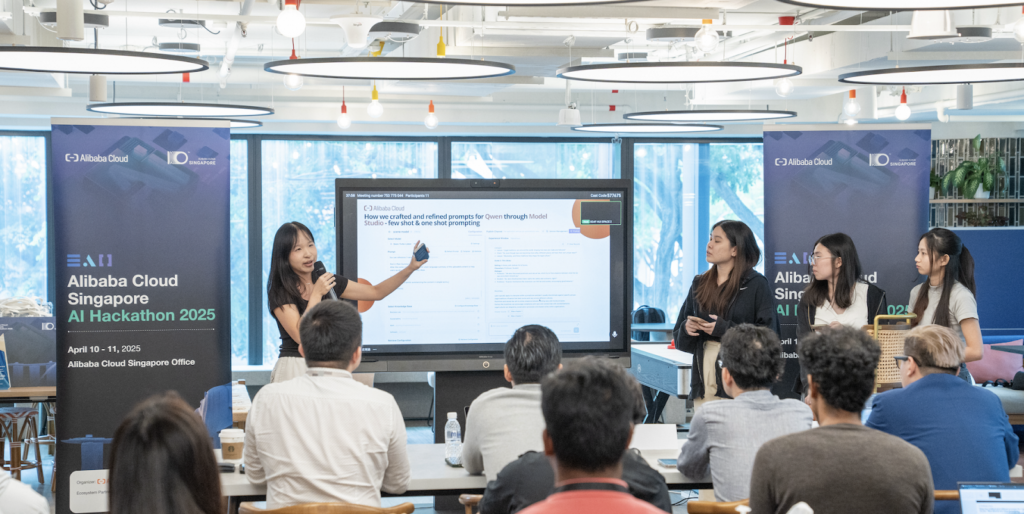Developers and entrepreneurs gathered at Alibaba Cloud’s 2025 Singapore hackathon to transform bold ideas into working prototypes. Over two days, participants tackled real-world challenges across education, design, storytelling, and digital marketing. Their mission was clear: build impactful solutions using cutting-edge artificial intelligence tools.
As the first in a series of global hackathons organized by Alibaba Cloud—with stops in Malaysia and Indonesia to follow—the event provided access to the company’s full suite of AI development tools. These included Model Studio, Qwen, Wan 2.1, Elastic Compute Service (ECS), and Platform for AI (PAI).
These projects demonstrated the power of generative AI to solve real-world challenges, redefining how we learn, create, and communicate.
Storytelling made simple
Agrim Singh and Vivek Kalyan created StorySpinner, a platform that turns short prompts into illustrated, narrated storybooks. The tool uses Alibaba Cloud’s Model Studio, Qwen LLM, and Wan 2.1 to generate structured narratives, visuals, and voiceovers within seconds.
StorySpinner is designed for parents, educators, and aspiring writers looking for a more accessible way to create and share stories. Users can guide tone, genre, and visual style to produce custom content that meets different needs.
The platform runs on ECS to enable global scalability. By removing technical barriers, StorySpinner allows users to create rich story experiences with minimal effort.

Smarter digital ads
Designing and adapting ad creatives for multiple audience segments is often a manual, repetitive process. Team Aces Of Spades tackled that problem with adMorph.ai, an AI tool that reimagines how performance marketing gets done.
The platform uses vision language models to analyze existing ad creatives and generate customized versions for different audience segments. With its autonomous evolution feature, adMorph.ai continuously learns from performance metrics and refines ad outputs for better engagement and return on investment.
By simplifying campaign workflows, the tool reduces production time and cost while improving personalization.

Conversational design workflows
UI/UX designers often work in messy, multi-layered design files, especially in collaborative environments. Philip Wee and Stephen Alvin built Taffy, an AI-powered assistant that can integrate with Figma and enable users to interact with design files using chat-based commands.
The tool is powered by Alibaba Cloud’s Model Studio, PAI, and ECS. It supports natural language queries, helping teams navigate and update complex layouts quickly.
Taffy is designed to enhance collaboration and speed up design iteration by reducing time spent on repetitive or hard-to-trace edits.

Learning through visuals
Many students struggle to stay engaged with traditional, text-heavy study materials. EduToon, developed by team Super4—Rochelle Chong Li Han, Lee Pei Xin, Neo Zi Ning, and Jodie Lim, was built to address that gap by transforming notes into comics and videos.
EduToon uses Qwen to extract content from written material, Wan 2.1 to generate visuals and videos, and AnalyticDB to store and manage the data. From a single input, it can produce both comics and short-form videos to match different learning styles.
The tool is designed for educators and students who benefit from visual formats and want to turn static information into engaging, interactive content.

As part of a global hackathon series, the Singapore AI hackathon brought together developers, entrepreneurs, and ecosystem partners to explore how AI can be applied to real-world challenges. With access to Alibaba Cloud’s AI tools, participants were able to build and test early-stage solutions across various domains.
This article was published in partnership with Alibaba Cloud.
